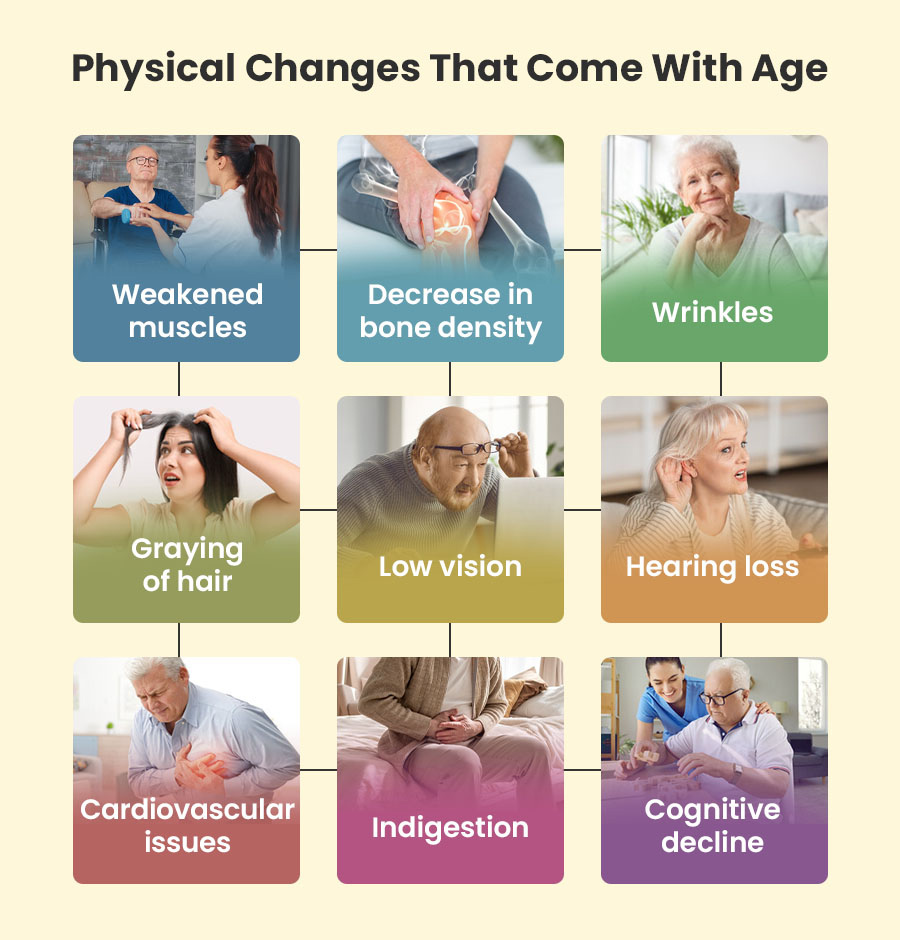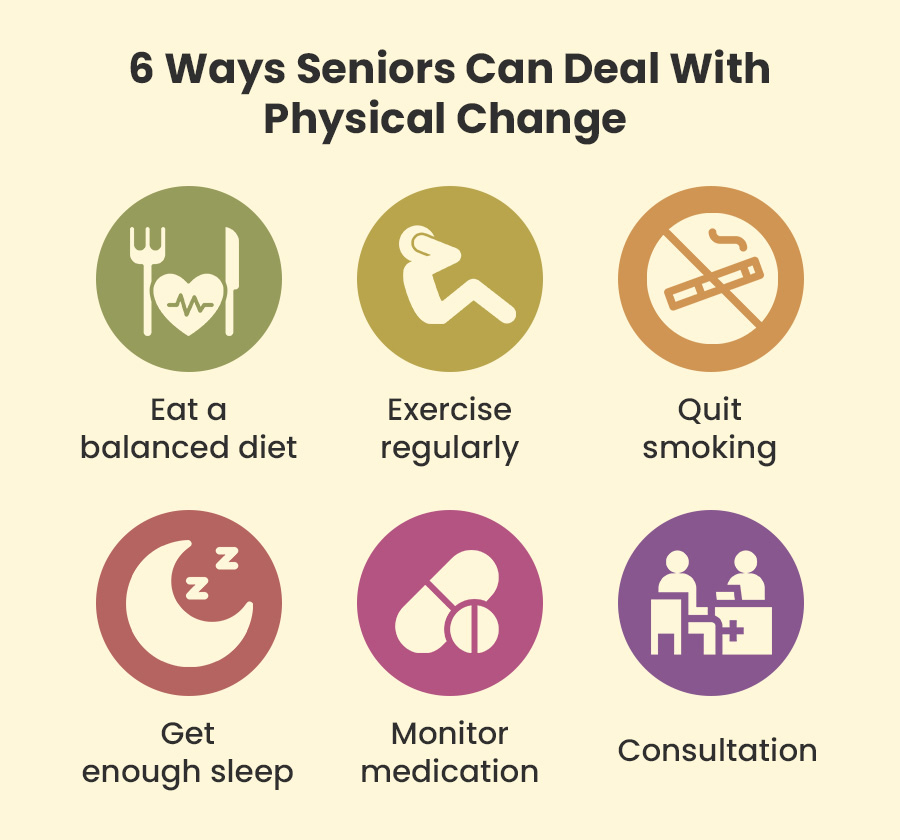Age makes it natural for our bodies to undergo various physical changes. Examples of physical changes include wrinkles, loss of muscle mass, osteoporosis, gray hair, and age spots. These changes can sometimes be challenging to come to terms with and can lead to feelings of insecurity or depression. However, it is important to remember that these changes are a normal part of the aging process and can be managed with the right strategies. This blog post will explore some of the most common physical changes that come with age and ways to deal with them healthily and positively. Whether you are in your golden years or approaching them, this post will provide valuable information and tips to help you navigate the aging process with grace and confidence.

1. Muscles and Bones
Muscles and bones are two important body components that change with age. Muscle mass generally loses strength, leading to muscle weakness, fatigue, and difficulty while performing daily activities. At the same time, bone formation slows and bone resorption increases, resulting in a decline in bone density and an elevated risk of osteoporosis, a condition characterized by fragile and brittle bones.
Strategies for maintaining seniors’ muscle and bone health
- Regular physical activity
- Adequate nutrition with a diet rich in calcium, vitamin D, and other essential nutrients
- Balance and flexibility exercises such as yoga, walking, chair exercises and stretching
- Avoid smoking and excessive alcohol consumption
- Physical therapy
- Monitoring medication side effects
2. Skin and Hair
Another common aging hallmark is the appearance of fine lines, wrinkles, and graying of hair. In addition, the skin loses its elasticity and gets thinner with age, which eventually leads to wrinkles and age spots.
Strategies for maintaining seniors’ skin and hair health
- Stay hydrated and drink plenty of water
- Protect your skin from sun exposure by using sunscreen
- Eat a healthy diet rich in vitamins and minerals
- Maintain regular grooming habits
- Exercise regularly to improve circulation
- Consult a dermatologist or trichologist for any skin or hair problems
3. Vision and Hearing
Vision and hearing deterioration is another physical change that happens with age. The lens of eye loses its elasticity, making it harder for seniors to focus on close objects. The retina also becomes thinner and less sensitive to light. In the case of hearing, the ear canal becomes narrower and the eardrum less flexible, making it harder to hear high-pitched sounds. Besides, exposure to loud noise over time can also lead to hearing loss.
Strategies for maintaining seniors’ vision and hearing health
- Regular check-ups with an optometrist or ophthalmologist and an audiologist
- Wear protective eyewear (sunglasses)
- Maintain a healthy diet
- Limit exposure to loud noise
- Use assistive devices (hearing aids, magnifiers)
4. Cardiovascular Health
As we age, the cardiovascular system undergoes changes that can increase the risk of heart disease. The walls of the blood vessels become less flexible and stiffer, leading to an increase in blood pressure. The heart muscle also changes to cope with the increased workload, which can lead to an increased risk of heart disease. Additionally, cholesterol levels change which can raise the levels of “bad” cholesterol, further contributing to heart disease.
Strategies for maintaining seniors’ cardiovascular health
- Exercise regularly for improved circulation and
- Eat a healthy diet to keep cholesterol and blood pressure levels in check
- Maintain a healthy weight to reduce the risk of heart disease and high blood pressure
- Quit smoking to lower stroke risk
- Manage stress
- Take medication as prescribed by the healthcare provider
- Consult with the nearest primary care physician at EliteCare Health Centers for cardiovascular issues.
5. Digestive System
With age, the digestive system goes through various changes. For example, the muscles in the digestive tract may become weaker, making it harder for food to move through the system and leading to constipation. Swallowing may also become more difficult as the esophagus contracts less forcefully. In addition, the stomach produces less acid, which can cause difficulty digesting food and absorbing nutrients.
Strategies for maintaining seniors’ digestive health
- Eat a balanced diet for the necessary nutrients and optimal digestion
- Stay hydrated to reduce constipation
- Take probiotics to improve gut microorganism balance and support the immune system
- Do not skip regular physical activities to stimulate the muscles in the digestive tract
- Limit high-fat meats, dairy products, and sweets, which might cause constipation.
- Maintain a healthy weight
6. Cognitive Function
Changes in cognitive function are a normal part of the aging process. However, for some seniors, these changes can even lead to cognitive decline and dementia. Changes in cognitive function can include a decline in memory, a decrease in attention and focus, difficulty in problem-solving and decision-making, and resulting in a slow cognitive processing speed. It is important to note that while these changes are normal, seniors can also suffer from a more serious condition such as Alzheimer’s.
Strategies for maintaining seniors’ cognitive health
- Engage in mentally stimulating activities such as reading, playing games, solving puzzles, etc.
- Stay physically active to improve blood flow to the brain and reduce cognitive decline
- Socialize
- Get enough sleep
- Manage chronic conditions to avoid negative impacts on cognitive function
Conclusion
Accepting that physical changes come with age helps seniors understand and be prepared for age-related challenges, maintain positive attitudes, seek appropriate care and support, live in the present, and enjoy the moment.


